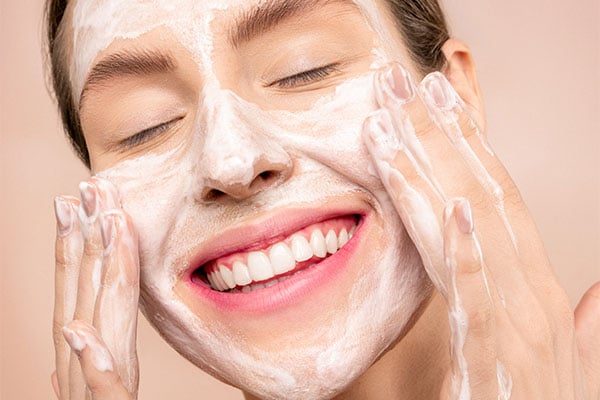Natural Skincare: Navigating the Risks of the “Double-Edged Sword”
The trend of using natural ingredients, such as fruits and vegetables, for skincare has gained popularity for its perceived safety, affordability, and noticeable effects. However, the excessive use of this method can lead to concerning side effects, turning your beauty routine into a “double-edged sword.”
Here are some common risks to consider when embracing a natural skincare routine:
Sun Sensitivity and Pigmentation
Fruits containing acids can brighten the skin, but they also make it more susceptible to sun damage. Without proper sun protection, exposure to UVA and UVB rays can cause pigmentation, dark spots, and long-term skin damage.
To safeguard your skin, always use sunscreen and cover up when stepping out into the sun.

The bright side of citrus fruits for the skin comes with a caveat: increased sun sensitivity.
Allergies and Irritation
Chemicals used to preserve the freshness of produce during transportation can cause skin irritation, allergies, or breakouts, especially for those with sensitive skin. Always opt for trusted sources and thoroughly wash the produce to minimize the risk of residual chemicals.
Dehydration and Dry Skin
Leaving natural masks on for too long or using them too frequently can lead to moisture loss, resulting in dry and rough skin. This is more common for normal or dry skin types, while oily skin may experience clogged pores due to increased sebum production to compensate for lost moisture.
To prevent this, limit mask application to 10-15 minutes and always follow up with a hydrating moisturizer afterward.

Don’t let your skin hydration suffer. Limit natural mask applications and moisturize afterward.
Thinning Skin
Some vegetables and fruits have high natural acid content, which, when used excessively or improperly, can lead to skin thinning. This makes the skin more prone to irritation and visible blood vessels. Those with sensitive skin should be especially cautious.
To mitigate this risk, always perform a patch test and limit the frequency of application.
Natural skincare can be beneficial when used judiciously and with awareness. However, it’s essential to consider the frequency, duration of application, and source of ingredients. Listen to your skin and adjust your routine accordingly to avoid unwanted complications.





































